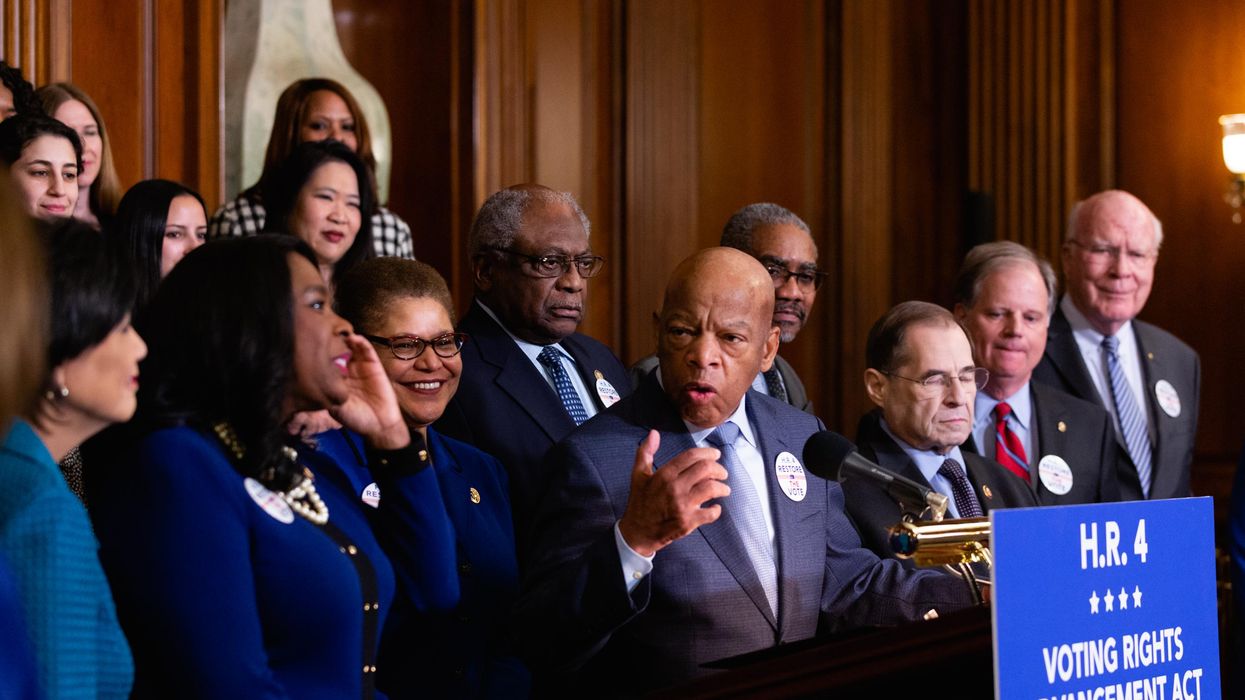The 2020 election year was the most logistically challenging in American history. Last February, just as the presidential primary season began, Covid-19 began spreading like wildfire, upending the rhythm of American life as we knew it. Yet, there was one event that could not be moved — the November general election.
Ultimately, 161 million citizens, the largest number ever, exercised their constitutional right to vote on or before Nov. 3. This historic turnout was a result of states implementing key reforms to the voting process that allowed citizens to receive and cast their ballots safely and securely during a once-in-a-lifetime global pandemic.
Many of these changes should remain in place after the pandemic, including extended periods for early in-person voting, expanded use of absentee ballot drop boxes and no-excuse absentee voting.
However, election officials in states including Texas and Georgia have already announced plans to reverse these changes, even as the country sets records for new coronavirus cases, hospitalizations and deaths. These officials vengefully argue that their voter suppression tactics are necessary to protect against voter fraud, despite the fact that the federal Cybersecurity and Infrastructure Security Agency confirmed the most recent election was "the most secure in American history." Rather than work to ensure that all eligible voters can continue to cast their ballots in the easiest and most secure manner possible, these officials are determined to unduly restrict who is able to vote and how.
Fortunately, the new Congress can send the new president two pieces of legislation that can stop these efforts before they begin.
In the last Congress, the Democratic-majority House passed what is now called the John Lewis Voting Rights Advancement Act as well as the For the People Act, which was also known as HR 1. But both of these important measures lay dormant in a Senate controlled by Republicans. Enacting these two bills would ensure that all eligible voters are able to vote seamlessly and restrict state and local jurisdictions from disenfranchising voters in such minority communities as Detroit, Philadelphia and Atlanta — three of the most prominent places where Donald Trump focuses his ire and his baseless allegations after the election.
Voter suppression efforts reached a fever pitch after 2013, when the Supreme Court invalidated the Voting Rights Act's preclearance formula in Shelby County v. Holder. The VRAA, named for the late iconic civil rights leader and Georgia congressman, would create a new formula, which would subject state and local jurisdictions with a history of voting rights violations over the past 25 years to preclearance for a period of 10 years. If a jurisdiction became subject to preclearance, it would be forced to obtain federal approval for changes to its voter ID laws, redistricting processes, voting locations, voting opportunities and voter registration list maintenance if those changes would impact minority communities.
While striking down the previous preclearance formula as unconstitutionally outdated, the Supreme Court said that Congress was free to "draft another formula based on current conditions." However, for almost eight years, Congress has failed to act. The VRAA does exactly that – creating a new formula to address modern-day voter suppression nationwide.
The bill would also expand the circumstances under which a federal court could block discriminatory practices, revise the circumstances under which the Justice Department could assign election observers, and require covered jurisdictions to notify the public of changes to their voting practices. The legislation additionally would prevent state and local jurisdictions from closing polling places and early voting sites in minority neighborhoods.
HR 1, meanwhile, includes essential protections against voter purges, which states like Georgia have repeatedly used to cancel voters' registration simply for not voting. The bill would also require states to modernize their registration processes through automatic voter registration, same-day voter registration and online voter registration. These key reforms would protect voters even if they are improperly purged from the rolls and make it easier for election officials to process registration information.
This legislation would also restore voting rights to people with prior convictions who have completed their sentences. Voter disenfranchisement laws were originally passed in states throughout the South in response to the political power formerly enslaved African Americans achieved during Reconstruction. This bill would re-enfranchise approximately 4.7 million citizens nationwide who are currently prohibited from voting in federal elections.
Powerful legislative leaders in Georgia, Texas, Pennsylvania and Michigan have already placed voter suppression at the top of their agendas for this year. The outgoing president planted seeds of doubt in many Americans' minds about the integrity and sanctity of our elections — and those could easily be transformed into fuel to suppress votes in the next election.
Congress must quickly pass both of these measures so that our new president, Joe Biden, can sign them early in his tenure. Doing so is vital for shielding Americans from the inevitable attacks on their right to vote that are on the horizon.



















